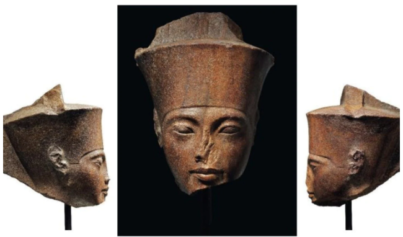Egyptian President Mohammed Morsi has brought on a massive crisis in his country by issuing a decree that gives him ultimate authority over the judiciary, and after negotiations yesterday with the Supreme Judicial Council failed to broker a resolution it appears the nation is preparing for plan B: widespread protests and violence.
Police were forced to fire tear gas at protesters in Cairo’s Tahrir Square yesterday as secularists and youth groups gathered to express their anger over the country’s first democratically elected president. Morsi’s spokesman, Yasser Ali, said the Nov. 22 eict applied only to “sovereign” matters, but that didn’t appear to appease anyone.
Already two have died and more than 40 have been injured in protests.
Experts say that Morsi has painted himself into a corner now because rescinding the decree will make him look weak.
“He has put himself in a very difficult position,” Shadi Hamid, director of research at Brookings Doha Center, told Bloomberg News. “It’s very difficult for him to pull back from a confrontation now.”
The underlying issue at stake in the fragile new government is how much power the ultra-religious Islamists will have to embed their conservative beliefs into the nation’s constitution.
As a member of the Muslim Brotherhood, President Morsi is eager to give Islamists as much power as possible, but he is being opposed by the more liberal secular forces in Egypt and also by a judiciary that is still loyal to ousted former President Hosni Mubarak. The nation’s judges have been the most vocal in their opposition to Morsi’s decrees, saying his decision to grant himself these powers that would put him above the judiciary is an “unprecedented attack.”
The struggle is about the nature of the Egyptian lifestyle for years to come: Will the country allow Islamists to dominate the government, as has happened in other North African and Arab nations, which will likely lead to a diminishing of human rights for the citizenry, or will the more liberal secular forces win the day? The outcome could have a substantial effect on the day-to-day freedoms of the Egyptian public.
The Muslim Brotherhood had originally scheduled a counter-rally today in support of Morsi, but they canceled the plans to avert the violence that would surely result.
As the country struggled with Morsi’s decision that Nobel Laureate Mohamed ElBaradei said turned him into a “pharaoh,” the Egyptian economy is suffering. The latest unrest triggered a 9.6 percent drop in the benchmark EGX 30 index on Nov. 25. The government has signed a preliminary deal with the International Monetary Fund for a $4.8 billion loan.
Many judges and prosecutors have stopped working in a protest of Morsi’s move. Morsi’s spokesman Ali said the president told the top judges yesterday he respected the judiciary’s independence and stressed the decree was temporary.
What Morsi may have done inadvertently is to mobilize secularists and youth groups in an opposition that had been mostly divided since Mubarak’s ouster, said Hani Sabra, Mideast analyst at the Eurasia Group.
The decree has “galvanized them,” Sabra said by phone. “Now, do they have the requisite support of the public to be able to influence Morsi to reverse course? I think that’s an open question.”


